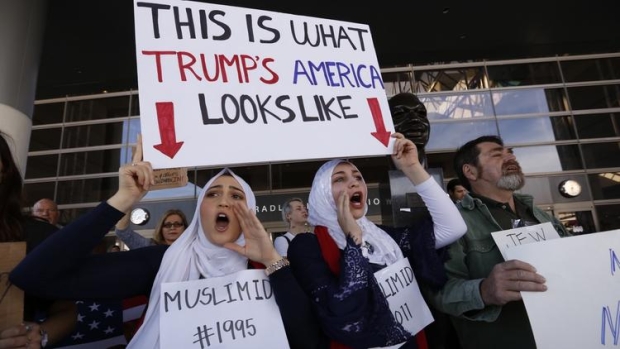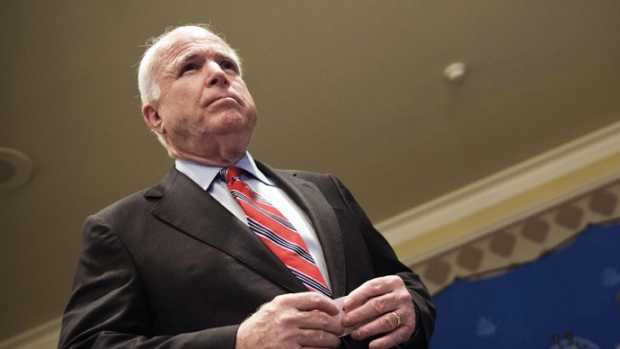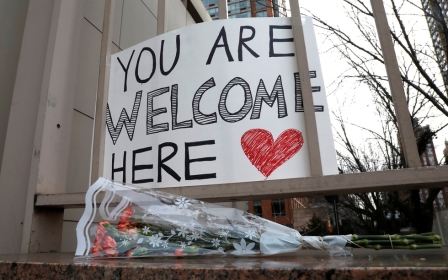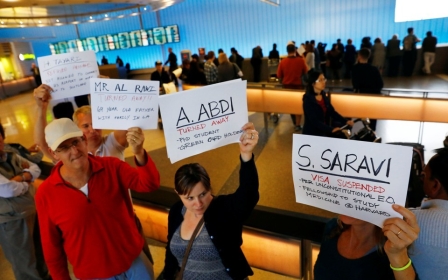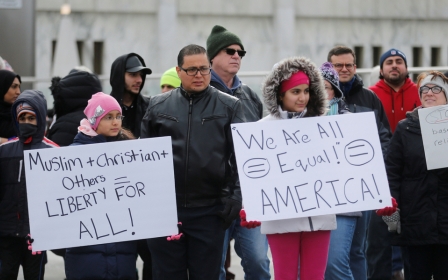Trump’s travel ban will only help terrorists
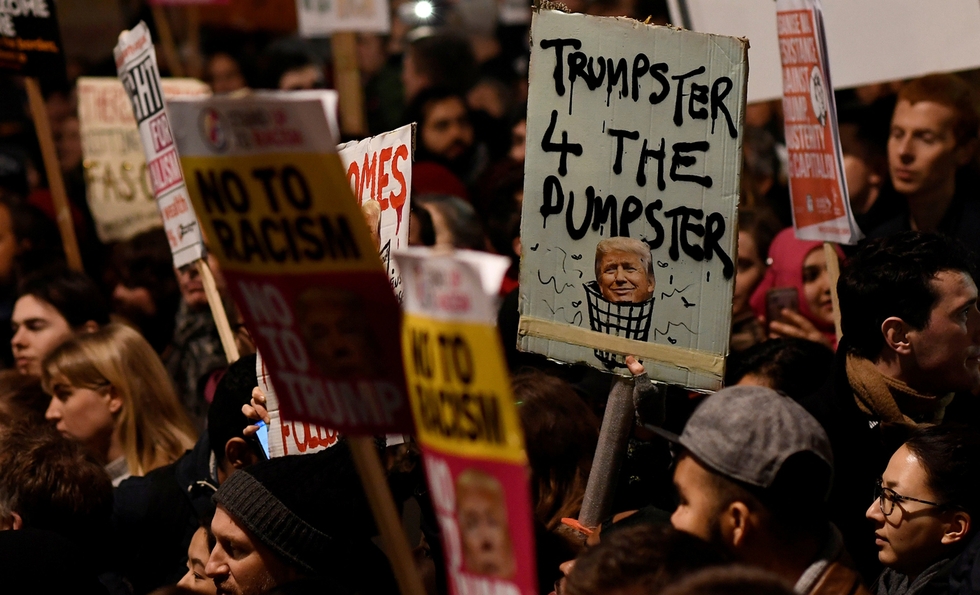
On Friday, Donald Trump, president of the United States, enacted an immoral executive order titled Protecting the Nation from Foreign Terrorist Entry into the United States, which suspends the US Refugee Admissions Programme (USRAP) for 120 days. It also bars entry into the US for nationals from Iraq, Iran, Libya, Somalia, Sudan, Syria and Yemen for at least 90 days.
Though cast as a counterterrorism measure, this order weakens US counterterrorism defences.
Furthermore, this order endangers existing cooperation between American counterterrorism forces and domestic and international US counterterrorism partners.
Threat to counterterrorism efforts
A draft of a cable circulating within the State Department to formally protest Trump’s order has drawn significant support from career officers, who warn that Trump’s order will likely be counterproductive to US counterterrorism efforts in the international arena and at home.
'This ban does not achieve its aims, and will likely be counterproductive'
- State Department draft cable
This draft, reviewed by The Wall Street Journal, states: “This ban does not achieve its aims, and will likely be counterproductive [in the fight against terrorism].”
According to those who have signed this draft, Trump’s order will “immediately sour relations” with the aforementioned seven countries, “as well as much of the Muslim world,” threatening intelligence-sharing between the US and its allies in the Middle East and North Africa region, particularly in Iraq.
READ: Muslim travel ban: Why I refuse to go to America
Moreover, Trump’s order threatens the sense of belonging to the US of American Muslims, increasing the likelihood that a US citizen or resident will become radicalised.
It also complicates the already-difficult task for US authorities of cultivating relationships with Muslim community leaders in the country.
Immediate consequences in Iraq
Trump’s order, which was designed without the input of Defense Secretary Jim Mattis and Middle East experts at the State Department, has strained relations with the Iraqi government, a key ally in the fight against IS.
This order is inconsistent with the Strategic Framework Agreement (SFA) for a Relationship of Friendship and Cooperation between the United States of America and the Republic of Iraq, which was signed on 27 November 2008, and calls for close political, economic and security ties between the US and Iraq.
How will the US persuade Iraqi or Syrian nationals to risk their lives to help the US if Washington does not stay true to its word?
Furthermore, this order is inconsistent with the current military situation in Iraq. At the moment, there are more than 5,000 US troops in Iraq, providing key military support to Iraqi military forces and Kurdish peshmerga auxiliaries, which are leading the battle against IS in Mosul.
In a statement issued on Sunday, senators John McCain of Arizona and Lindsey Graham of South Carolina, Republicans who have been supportive of the military, expressed their concern that a strict application of the order might impede Iraqi pilots from coming to the US for training.
In addition, this order prevents former Iraqi interpreters and cultural advisers who have worked closely with the US military from seeking protection in the US. It essentially says: “Once the US is done using its collaborators for its own interests, it leaves them behind.”
In this regard, the order will undermine future efforts to recruit collaborators. How will the US persuade Iraqi or Syrian nationals to risk their lives to help the US if Washington does not stay true to its word?
READ: Who speaks for Muslims? The Saudis, the Turks or the Germans?
Unsurprisingly, the cleric Moktada al-Sadr has accused the US of “arrogance”. On Sunday, in a tweet published on his website and addressed to the US, he stated: “When you [the US] enter, with a complete freedom, in Iraq and other countries while you prevent their entry into your country, that is a swagger and an arrogance... Then get your nationals out [of Iraq] before you get other colonies out [of your country].”
Propaganda for Islamic State
Surely, IS militants will capitalise on Trump’s order to recruit new volunteers. Supporters have already turned to social media platforms to argue that the order in question validates their claim that the West, led by the US, profits from the natural resources of the Middle East and North Africa, and is at war with Islam.
Trump’s rhetoric during the presidential campaign, itself a triumph of inarticulacy, was not rhetorical but sincere
Several posts suggested that Trump was fulfilling the predictions of Anwar al-Awlaki, the US born al-Qaeda leader who said that the “West would eventually turn against its Muslim citizens”. Awlaki was killed in a US drone strike in Yemen in 2011 and his eight-year-old daughter was killed in the first US raid authorised under Trump in Yemen.
Trump’s recent comments further validate the terrorists’ claims. On his first day in office, Trump stated in his speech at CIA HQ that the US should have seized Iraq’s oil reserves after the US-led invasion of Iraq in 2003. He also hinted that there might be another chance to do so.
READ: Bannon’s plan to bring down US democracy has started
To the horror of many, including myself, Trump’s rhetoric during the presidential campaign, itself a triumph of inarticulacy, was not rhetorical but sincere. Consequently, his promises must be taken seriously and literally.
So must the threat they pose to security. Trump’s discriminatory actions as president will embolden the narratives of extremists, and provide further fuel to the advocates of terrorism.
Hopefully, the energy of those protesting will be channelled into action before Trump trumps the international security order.
- Tania Ildefonso Ocampos is a Spanish political analyst who specialises in EU strategy in the Middle East. She is a former Schuman trainee (Euro-Med and Middle East Unit of the European Parliament's Directorate-General for External Policies), and holds an MA in Middle Eastern History from Tel Aviv University, Israel.
The views expressed in this article belong to the author and do not necessarily reflect the editorial policy of Middle East Eye.
Photo: Protesters demonstrate against the Muslim ban and anti-immigration orders (Reuters)
New MEE newsletter: Jerusalem Dispatch
Sign up to get the latest insights and analysis on Israel-Palestine, alongside Turkey Unpacked and other MEE newsletters
Middle East Eye delivers independent and unrivalled coverage and analysis of the Middle East, North Africa and beyond. To learn more about republishing this content and the associated fees, please fill out this form. More about MEE can be found here.



